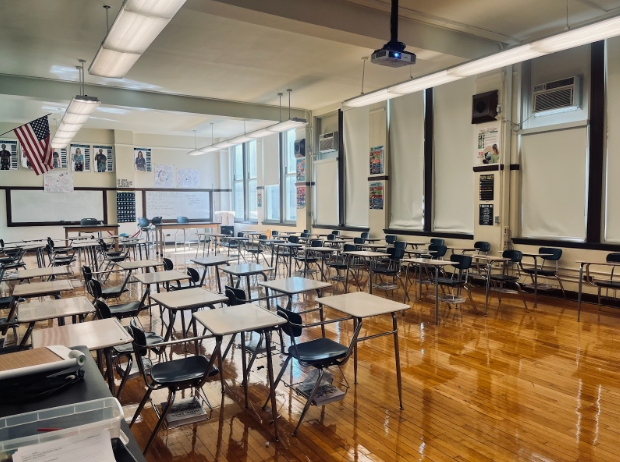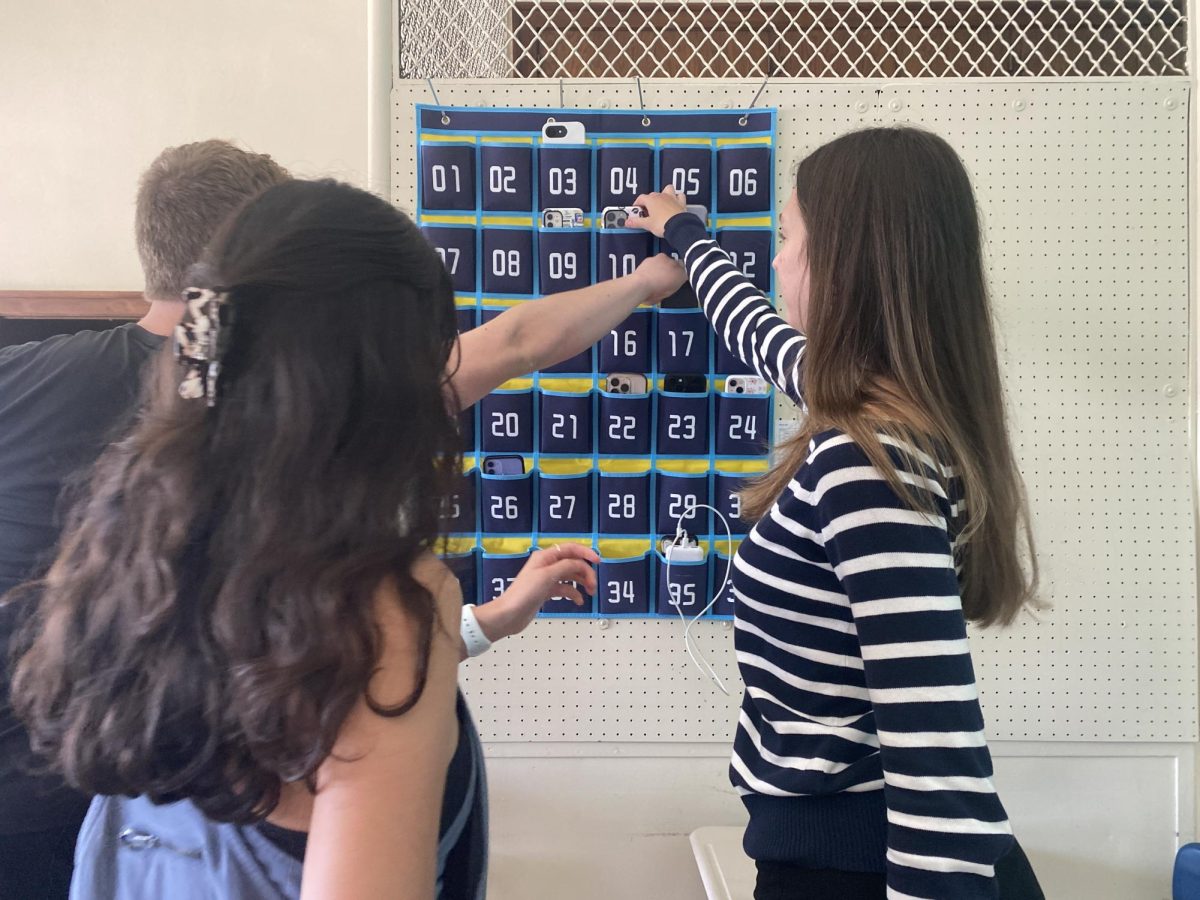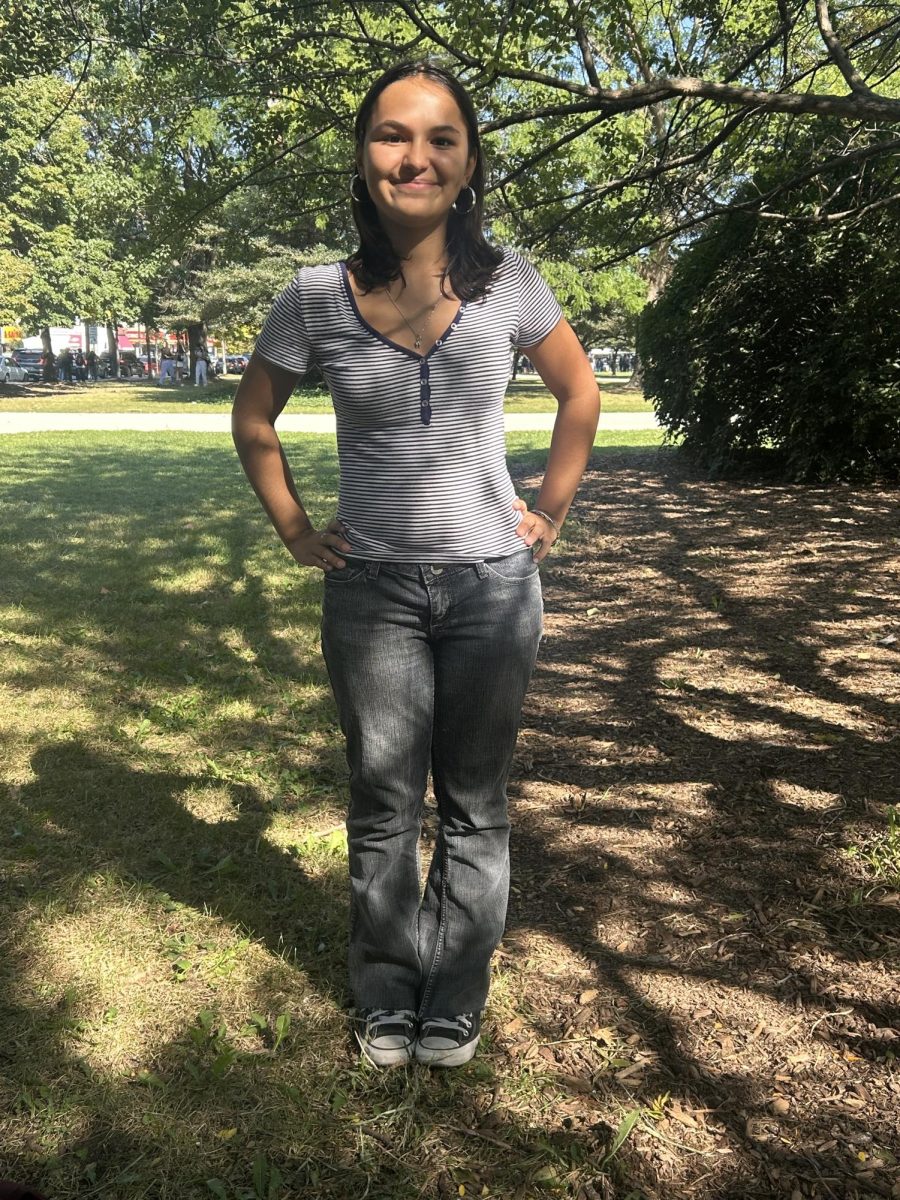By Robin Buford
Missing high school is a major obstacle to face, and a surgery or major injury doesn’t ease the struggles. But for some at Lane, it’s possible to make a positive out of a negative.
Christina Diaz, Div. 390, knows all too well the struggles of getting through school after surgery. Diaz was born deaf and had to get surgery at only three years old.
“I had a bone in my head that had to be moved so doctors could insert a piece to help me hear,” Diaz said, who had to take intensive speech and hearing therapy before and after her surgery.
“I went to Child’s Voice, a strict private school for deaf children, and they did not allow you to do sign language,” Diaz said.
Child’s Voice seemed to be a helpful opportunity for Diaz because after four years of training and graduating from first grade, Diaz was able to start public school. Starting high school may be confusing for some, but for Diaz it was a whole new world. While others only had to pass a test to get into Lane, Diaz had to go the extra mile.
“I’ve always wanted to come to Lane but it was harder for me,” Diaz said, “I had to get recommendations because of my hearing complications.”
Aside from Diaz’s mother talking to the school board, she had someone else in her corner to help out.
“Ms. Malinowski made a recommendation for me to get into Lane. I was happy because she’s been helping me since freshman year,” Diaz said.
Diaz struggled most of her childhood trying to adapt to new surroundings, and thought she was finally making progress until her junior year of high school.
“I had a hearing-aid, but the day of Turkey Bowl I went deaf in one ear for two days and needed emergency surgery,” Diaz said,” It took two weeks for our insurance to approve coverage of my surgery.”
Diaz’s family surrounded her as she sat nervously waiting for surgery at Children Memorial Hospital. Since her last surgery the bone in her head had grown, blocking the hearing piece that had been activated years ago.
Diaz missed school for the rest of October and half of that time she spent it on the couch not being able to hear a thing. But upon her return to school, her division and friends welcomed her with smiles, hugs, and balloons.
“I was so happy to be back. I hated being on the couch. I missed my friends,” Diaz said.
Although catching up with friends was easy, catching up with school work was more of a challenge.
“It was so hard to make up all the work I missed and to have to start off where everyone else was, I had to go to tutoring,” Diaz said. “Junior year is big and I didn’t want to have to go to summer school, but if I have to I will. I plan on finishing out this year the best I can.”
Although Diaz had friends to welcome her back, she was reluctant to share her reasons for leaving school even though her hearing had returned.
“I didn’t want to be known as the deaf girl. I wanted people to get to know me and not my disability,” Diaz said, “I would hear people talk bad about friends who were like me, and I would confront them, but inside I wouldn’t want to be in their position.”
Diaz has faced many obstacles since she was young but they haven’t stopped her from trying. Diaz’s actions show that she has turned her disability into a motivator to keep her focused in life. Although she has missed out on a lot and is still struggling to catch up, Diaz says that her time off makes her really want to learn and not just ease through the rest of the year.
In the case of Emily Fusilero, Div. 379, her injuries didn’t force her from school, but they made it harder for her to get around and stay focused. Fusilero tore the tendons in her ankle while playing around with friends. She saw many different doctors, but ultimately she only needed a walking cast.
While Fusilero was supposed to be allowing her ankle to recover, she was instead putting it to work.
“I’m a swimmer. So I went against doctors orders and got back in the water,” Fusilero said.
Fusilero didn’t have any problems outside of school, but inside “it was hell.”
“Oh, God – getting around – it was the hardest thing in the world. Hallways seemed like eternities,” Fusilero said.
Lane’s elevators for the handicapped and people with broken legs didn’t do much good Fusilero, either.
“Security was rarely there until they finally learned my pattern, but there’s so many other kids with broken legs walking around, and only two elevators miles apart,” Fusilero said,” Sometimes I would have my teachers call for security.”
A lot of teachers are strict about tardy students and being prepared for class, but Fusilero’s broken ankle gave her advantages others didn’t have.
“Teachers never gave me tardies and I didn’t have to carry all my books to my classes because teachers would have a copy in the classroom for me,” Fusilero said,” I even enjoyed a few minutes longer at lunch.”
Delia Rodriguez, Div. 381, broke her ankle while skating on a trip in Joliet and had to wear a cast for nearly three months.
“It still bothers me if I stand or walk for too long; I was glad I got to stay out of school for awhile but wasn’t happy about the work I had to make up,” Rodriguez said.
While other students may have left class earlier or used the elevators to get around school, Rodriguez decided to take matters into her own hands.
“I couldn’t use the elevator because I would never see a janitor,” Rodriguez said,” Besides I didn’t feel like I really needed help getting around.”
Although Rodriguez didn’t let her broken ankle limit her abilities, she was anxious to get it off.
“Sometimes I would pretend to be in a lot of pain so I could stay home,” Rodriguez said,” But I couldn’t do it a lot because my friends were so worried. They took my injury really seriously.”
Rodriquez didn’t have to deal with making up work after missing so much school.
“It was after finals so catching up was easy,” Rodriguez said.” I had to make up work, but it was all do-able since it was the end of the school year.”
From the most serious surgeries to minor injuries these girls used a bad situation to make positive outcomes for the long run.





